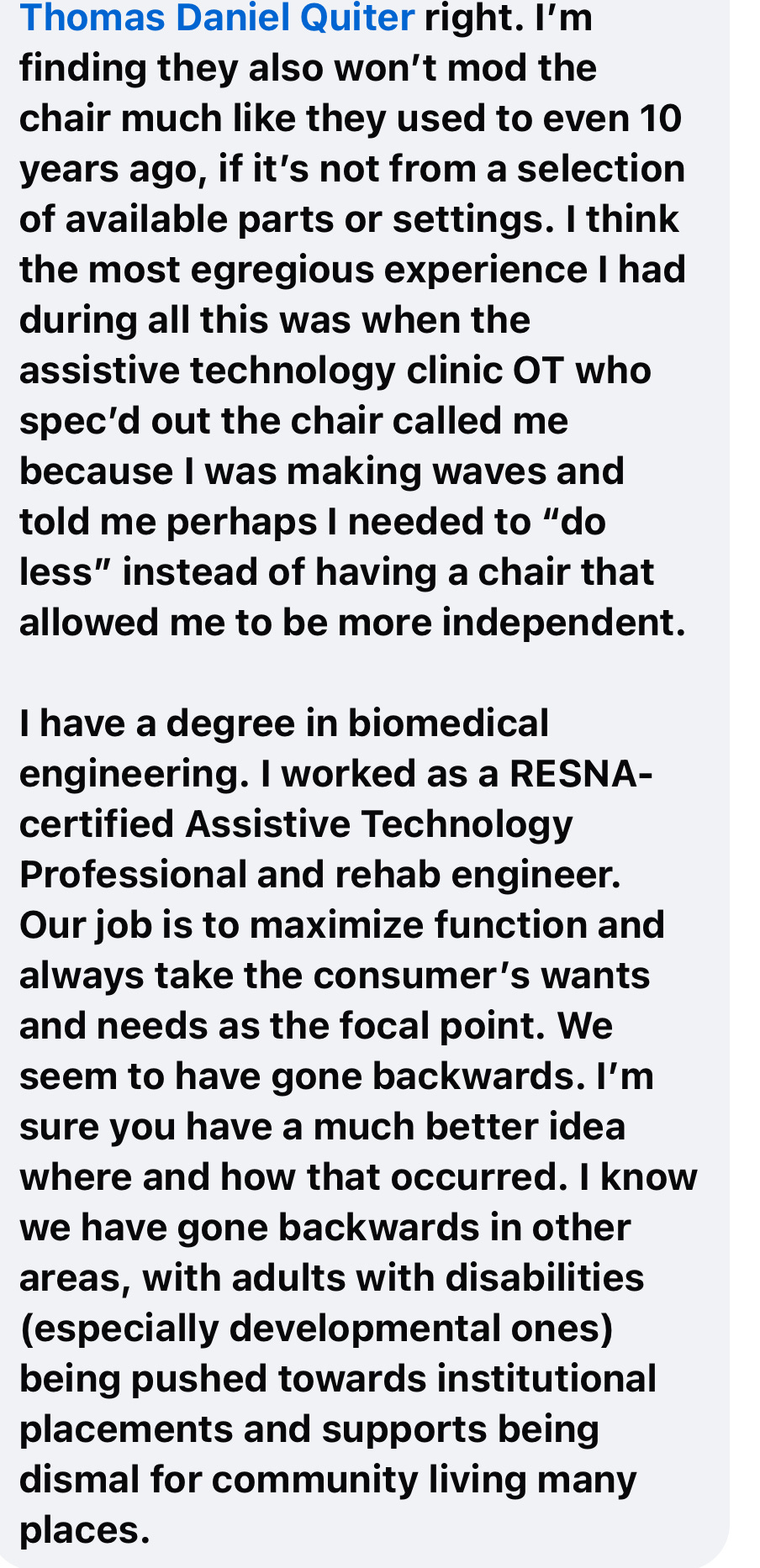The current state of wheelchair technology and delivery mechanisms is both inadequate and distressing. Consider the experience of a fellow wheelchair user: their new wheelchair, which was supposed to arrive in six weeks, took a year to be delivered and was two inches higher than specified, rendering it incompatible with their home setup. Despite signing off on the delivery at the clinic, they had to fight for months to return it, eventually reporting fraud to Medicare and winning the case. However, the reimbursement process has been slow, and they are now starting the process anew with a local independent vendor still on the Medicare list.
During the year-long battle to return the faulty chair, they had to cover repair costs for their existing, deteriorating wheelchair. The consolidation of local vendors by a few large companies has further complicated the situation, as these entities often lack the necessary care and responsiveness. Additionally, modifications to wheelchairs have become limited, with options restricted to available parts or settings, unlike a decade ago.
Medicare regulations stipulate that for a wheelchair to be covered, the doctor treating the condition must submit a written order stating the medical necessity for the wheelchair1. The equipment must be suitable for use within the home, and both the doctor and the supplier must accept Medicare1. Despite these regulations, delays in delivery and issues with the suitability of the equipment are common. The Centers for Medicare & Medicaid Services (CMS) oversees the Durable Medical Equipment, Prosthetics, Orthotics, and Supplies (DMEPOS) program, which has faced criticism for its implementation and the resulting delays and complications2.
The most egregious incident occurred when an occupational therapist from the assistive technology clinic suggested they "do less" instead of advocating for a chair that would enhance their independence. As a biomedical engineer and former RESNA-certified Assistive Technology Professional and rehab engineer, I believe our focus should be on maximizing function and prioritizing the consumer's needs. Unfortunately, support for adults with disabilities has regressed, pushing many towards institutional placements and providing inadequate community living support.
The Medicare Claims Processing Manual outlines the procedures for processing claims for durable medical equipment, including wheelchairs3. However, the reality often falls short of these guidelines, with beneficiaries experiencing significant delays and inadequate support. The competitive bidding program, intended to reduce costs, has led to fewer suppliers and reduced service quality2. This has left many wheelchair users struggling to obtain the necessary equipment and support.
The current system for providing wheelchairs is fraught with delays, inadequate equipment, and poor service. The consolidation of suppliers and restrictive modification options further exacerbate these issues. It is crucial to revamp the system, focusing on the needs and independence of wheelchair users, and ensuring that Medicare regulations are effectively implemented to provide timely and suitable equipment.




